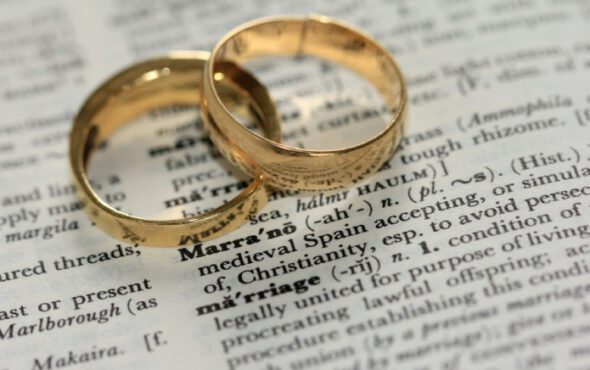
New data has revealed that married same-sex couples deal with stress better than opposite-sex couples.
When it comes to marriage, stress levels can differ between couples, whether for financial reasons, emotional ties or lack of communication.
To better grasp how same-sex and opposite-sex partnerships navigate stressors, researchers at the University of Texas at Austin surveyed 419 couples on dyadic coping – which “conceptualises the way couples cope with stress together” (per Frontiers).
As a result, scientists found that same-sex married couples cope with stress in a more positive and collaborative way than different-sex couples.
The research – which was published in the Journal of Social and Personal Relationships – also found that women married to men reported more negative support, which meant that they either received a hostile or ambivalent reaction from their partners in relation to stress.
In a statement, the study’s author, Yiwen Wang, gave further insight into the landmark findings.
“This research shows that while there are some gender differences in dyadic coping efforts, the effects of supportive and collaborative dyadic coping as well as of negative dyadic coping on marital quality are the same for all couples,” Wang explained.
“Our findings also emphasize the importance of coping as a couple for marital quality across different relationship contexts, which can be an avenue through which couples work together to strengthen relationship well-being.”
Lastly, the study found that men and women in same-sex relationships did a better job coping with stress due to having an array of similarities – including shared gender and societal experiences.
In an additional statement, Wang’s co-author Debra Umberson expressed the importance of the aforementioned study and how it can help researchers get a better understanding of marriage dynamics.
“Including same-sex spouses and looking at how they work with each other to manage stress as compared to different-sex spouses can help us better understand the ways in which gender dynamics unfold in marriages,” said Wang’s co-author Debra Umberson.
“Same-sex couples face unique stressors related to discrimination and stigma. Coping as a couple may be especially important for them as they do not receive as much support from extended family, friends or institutions as different-sex couples do.
“It is imperative that we advance our understanding of how spouses influence each other’s well-being for same-sex as well as different-sex married couples and that we consider both spouses’ perspectives within couples.”



